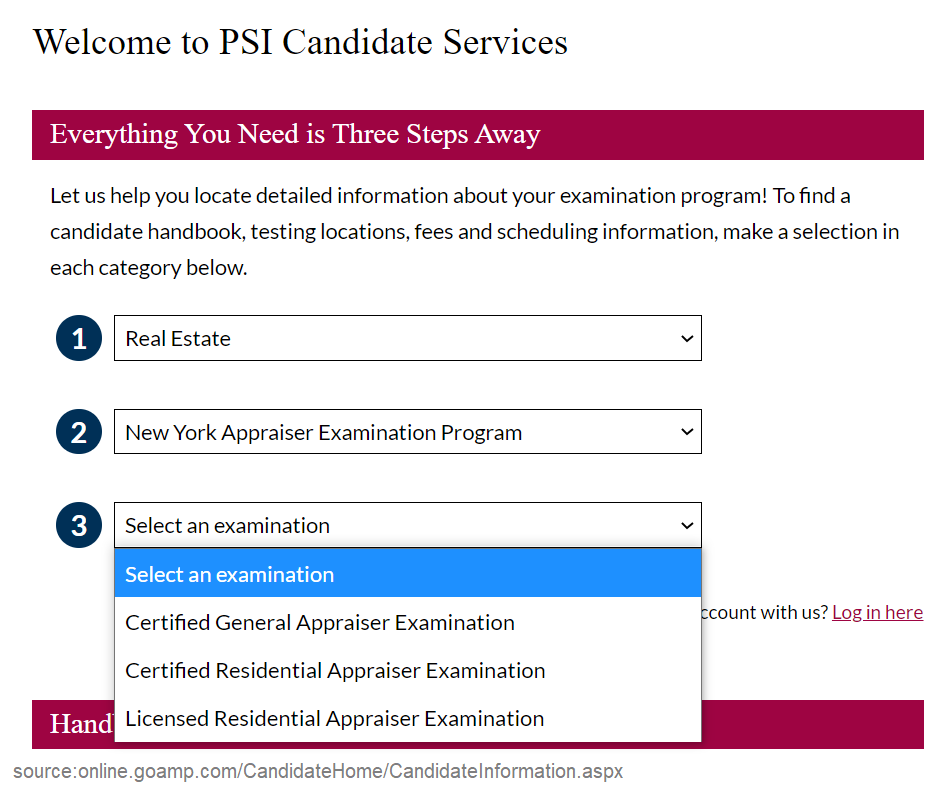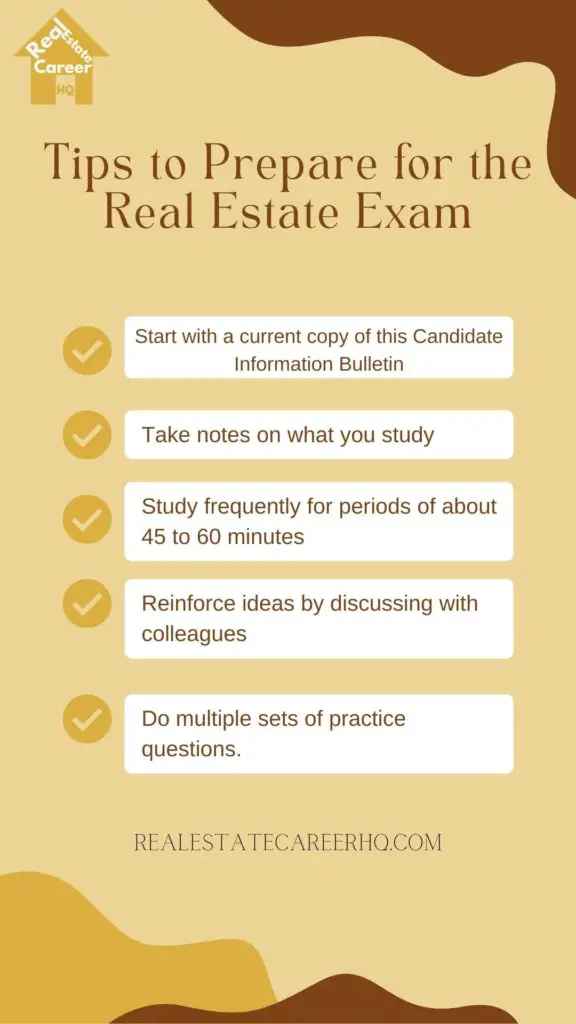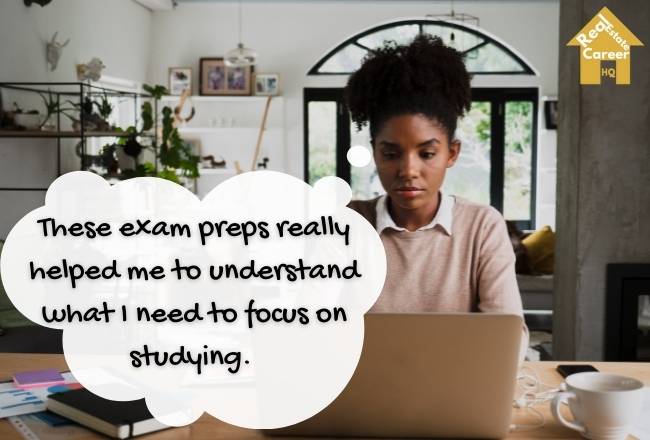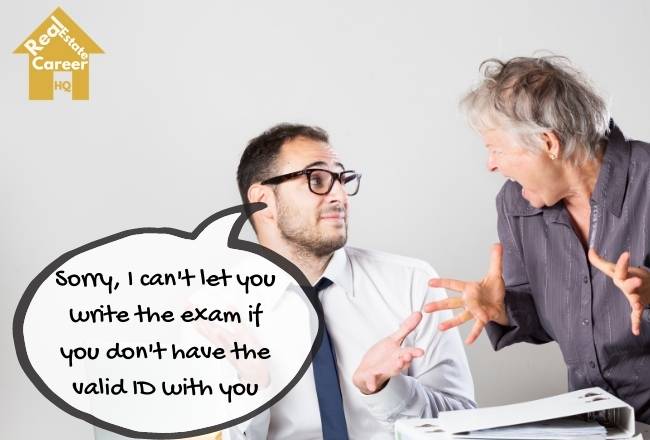(**) Disclosure: This post may contain affiliate links, meaning RealEstateCareerHQ.com will get a commission if you decide to make a purchase through the links, but at no additional cost to you.
Passing the Real Estate Appraiser Exam is one of the requirements for becoming a Real Estate Appraiser in New York. The exam content outline is based on a job analysis conducted by the Appraiser Qualifications Board (AQB).
The purpose is to ensure exam writers have the necessary knowledge and skills to properly appraise a property. The exam is administered by PSI. Since there are different appraiser licenses in New York- Licensed Residential, Certified Residential, and there are distinct exam requirements for each license level.
To pass the New York Real Estate Appraiser Exam, the candidate must achieve a score of at least 75/110 on the LR/CR/CG exam. Studying the course materials from a trusted provider, read over the New York Real Estate Appraisers Program Candidate Handbook and doing exam preps can increase the chance of passing the exam.
In this guide, I will go over the content, sample questions, FAQ, exam preps of the New York real estate appraiser exam. Although the result is not guaranteed, I’m confident it can help to increase your chance of passing it significantly. So you will be one step closer to starting your real estate career in New York.
But before we start, I want to give a brief disclaimer. This post is not intended as legal advice or state/federal real estate training. It is for general information only. Please always follow your State laws and best practices.
Table Summary of the New York Real Estate Appraiser Exam
| Appraiser Exam | # of Questions | Writing time | Required Passing Score |
|---|---|---|---|
| Licensed Residential | 110 (+15 pretest) | 4 hours | 75 out of 110 |
| Certified Residential | 110 (+15 pretest) | 4 hours | 75 out of 110 |
| Certified General | 110 (+15 pretest) | 6 hours | 75 out of 110 |
How to register for the New York Real Estate Appraiser Exam?
You may register for the examination by submitting an application to the New York Real Estate Appraisers Board. After you receive the confirmation from the Board, you may schedule the exam through PSI.

The New York Real Estate Appraiser Exam is administered by the PSI and to schedule in writing it, you need to create an account on their website. In there, you can choose the testing center and date. The exam fee is $125 and it can be paid through a credit card, debit card or electronic check.
If you have any questions about the New York real estate appraiser exam, you may contact them at 855-746-8173. Their office hours are available from:
- 8:00 a.m. to 10:00 p.m. (Eastern Time) Monday through Thursday,
- 8:00 a.m.to 8:00 p.m. on Friday
- 9:30 a.m. to 6:00 p.m. on Saturday
If you need to make any appointment changes, you must do so at least 2 business days before the exam.
Here is the info about the New York State Licensed, Certified Residential, Certified General Real Estate Appraiser Exam
The New York LR/CR/CG Real Estate Appraiser Exam has a total of 125 questions, but 15 of them are pretested and will not be scored. The LR & CR exam has 4 hours of writing time, and CG has 6 hours. The passing score is 75 and higher.
Here is the content of the LR/CR/CG appraiser exam:
| Content Area Description | LR | CR | CG | Topics |
|---|---|---|---|---|
| Real Estate Market | 18% | 18% | 18% | A. Types of influences on real estate value B. Types of government power C. Types of real estate value D. Date of value premise E. Market analysis F. Investment analysis G. Tests of highest and best use H. Analysis of highest and best use |
| Property Description | 11% | 12% | 11% | A. Description of land or site B. Description of improvements and building components C. Legal interest D. Rights to use E. Property taxation |
| Land or Site Valuation | 3% | 3% | 4% | A. Land or site valuation methods |
| Sales Comparison Approach | 22% | 18% | 13% | A. Identification of comparable sales B. Units of comparison C. Elements of comparison D. Quantitative adjustments E. Qualitative adjustments F. Reconciliation to indicated value by the sales comparison approach |
| Cost Approach | 13% | 14% | 11% | A. Sources of cost information B. Cost components C. Depreciation D. Methods of estimating depreciation E. Reconciliation to indicated value by the cost approach |
| Income Approach | 4% | 8% | 18% | A. Sources of income generation B. Occupancy / vacancy analysis C. Expenses D. Capitalization E. Estimation of value using income approach F. Reconciliation to indicated value by the income approach |
| Reconciliation of Value Indications | 2% | 2% | 2% | A. Reconciliation of approaches to value |
| Uniform Standards of Professional Appraisal Practice | 20% | 18% | 17% | A. Definitions and preamble B. Ethics rule C. Record keeping rule D. Competency rule E. Scope of work rule F. Jurisdictional exception rule G. Standard 1 H. Standard 2 I. Standard 3 J. Standard 4 K. USPAP advisory opinions and FAQs L. Extraordinary assumption M. Hypothetical condition |
| Emerging Appraisal Methods | 3% | 4% | 3% | A. Application of online property information database and technological tools B. Appropriate use and limitations of the hybrid/bifurcated appraisal method C. Use and limitations of automated valuation models |
| Appraisal Statistical Methods | 4% | 3% | 3% | A. Statistical measures of central tendency B. Statistical measures of variation C. Inferential statistical techniques used in appraising |
Tips to prepare for the New York Real Estate Appraiser Exam

Let’s Study the New York Real Estate Appraiser Exam “Strategically”
Many people would try to read and memorize all the study materials. Although it could work for some people, it really doesn’t work for me.
Here are the exact steps I have been using to prepare for exams. It has worked wonderfully for me throughout high school and university, and they still work well when I wrote exams in my field of work.
- Review the exam outline to see which topics will be heavily weighted
- Skim through a practice exam to get a sense of the questions
- Read over the course materials. Focus more on the sections you’ve seen in the practice exam and those that will be heavily scored.
- Try writing a practice test.
- For the parts that you got wrong, you should review them carefully. I usually would create a document file and take notes on those topics.
- Repeat steps 4 and 5 until you can score at least 10% more of the required passing mark for at least two practice exams. (Some people would get nervous during the actual exam writing, so it’s better to have a buffer room on the score. In this case, try to aim for over 85% for the New York real estate appraiser exam.)
Doing practice questions indeed can help you prepare for the real estate exam. They help you understand what type of questions you’re likely going to see during the test and give you an idea of what topics might come up, making studying more efficient.
Here’s another tip: Studying for the sack of passing the real estate appraiser exam could be dreadful. Remember that a specific question appears in the test because it could actually be applied in your real estate practice. When you study, just imagine that you’re applying this knowledge to an appraisal assignment.
Here are some New York Real Estate Appraiser Exam Preps that can help You

McKissock has exam prep packages for those who wish to become a licensed and certified residential appraisers. It helps you to prepare for the exam through self-paced online prep and live crammer sessions. You will also able to identify your strengths and weaknesses, so you may focus on areas that needs improvement. Click here for McKissock Exam Prep (**)
Where can I take my real estate exam in New York?

There are multiple testing centers where you can take the New York real estate appraiser exam. They are in cities such as Hempstead, Hicksville, Long Island, New York City, Nyack, Oneonta, Rochester, Selden, Staten Island, Watertown, Westbury, White Plains, Whitesboro, and Williamsville.
It’s better to do a search in Google Map beforehand. I usually would do a street view tour to have a better idea of the testing location. And also find out where you can park your car.
On the testing day, you should account for the time to sign in and go through the identification process. It’s better to arrive at the testing center at least 30 minutes before your exam.
What should I bring to the exam center?

You are required to bring two pieces of valid ID. The primary ID needs to be a government issued ID with photograph and signature. Keep in mind that temporary ID will not be accepted.
- driver’s license with photo;
- state identification card with photo;
- passport;
- military identification card with photo.
The Secondary ID needs to have signature and not expired.
- U.S. Social Security card with signature
- Credit card with signature
- employment/student ID card with signature
When will I know the result?
Once you finish writing the real estate appraiser exam, you will receive a score report that mark either “pass” or “fail”.
- If you pass, you will be provided with information on how to apply for a license.
- If you fail, you will be provided with a diagnostic report of the exam. You will also receive information about reexamination. You may schedule for a retake and there is no limit on the number of attempts within your two-year eligibility period. Additional exam fee will apply.
Video with Sample Questions on the New York Real Estate Appraiser Exam
This article is part of the “New York Real Estate Appraiser Career Series.” If you want to know more about being a real estate appraiser in New York, I invite you to check out the following articles:
- How Much do Real Estate Appraiser Make in New York?
- How to Become a Real Estate Appraiser in New York?
(**) Affiliate Disclosure: Please note that some of the links above are affiliate links, and at no additional cost to you. Our company, JCHQ Publishing will earn a commission if you decide to make a purchase after clicking on the link. Please understand that we include them based on our experience or the research on these companies or products, and we recommend them because they are helpful and useful, not because of the small commissions we make if you decide to buy something through the links. Please do not spend any money on these products unless you feel you need them or that they will help you achieve your goals.
Disclaimer: The information in this post is for general information only, and not intend to provide any advice. They are subjected to change without any notice, and not guaranteed to be error-free. Some of the posts on this site may contain views and opinions from individual not related to JCHQ Publishing. They do not necessarily reflect our view or position.
Reference:

